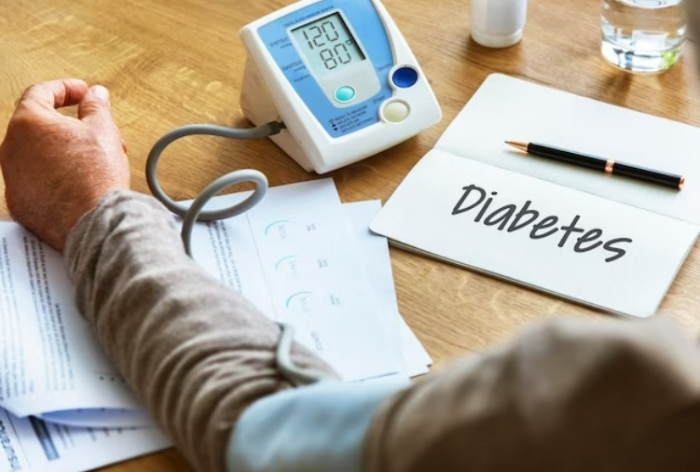If you have type 2 diabetes, you are well aware of the benefits of making wise decisions regarding your diet, medicine, and lifestyle in order to maintain a good blood sugar level and lead a high-quality life.

Type 2 Diabetes: From head to toe, type 2 diabetes can cause a number of consequences, such as stroke, blindness, amputation, and more. The stress of controlling their diabetes puts those who have it at risk for mental health problems including anxiety or depression. Type 2 diabetes symptoms frequently appear gradually. In fact, you may have type 2 diabetes for years without realizing it. Increased appetite, frequent urination, increased thirst, exhaustion, hazy vision, slow-healing wounds, and numbness or tingling in the hands or feet are some symptoms that may be present.
5 RISK FACTORS ASSOCIATED WITH TYPE 2 DIABETES
- Low blood sugar is referred to as hypoglycemia. Your blood sugar level might fall, especially if you’re using insulin or a sulfonylurea medication (both induce the production of insulin throughout the day in your body). Your blood glucose may fall too much if you consume less than usual or are more athletic than you usually are while taking these drugs.
- Long-term blood glucose levels that are outside of the normal range can harm the retina, and the light-sensitive tissue at the back of the eye, and result in retinopathy, which can develop cataracts. Both ailments may result in eyesight loss.
- Kidney disease, also known as diabetic nephropathy, if left untreated, can compromise kidney function and necessitate dialysis or kidney transplantation. Diabetes that is uncontrolled or inadequately controlled can damage the kidneys, preventing them from properly cleansing the blood.
- Some persons with type 2 diabetes already have symptoms of nerve damage before they are diagnosed. Diabetes-related nerve damage is referred to as diabetic neuropathy. Your small blood vessels “feed” your nerves, therefore if the blood vessels are injured, the nerves will ultimately get damaged as well.
- Large blood arteries in your body can get damaged by type 2 diabetes, which can eventually result in plaque buildup and perhaps cause a heart attack, stroke, or artery blockage in the legs (peripheral vascular disease).
While consequences from diabetes are unexpected, you may take precautions. Make sure your diabetes is under control above anything else. This involves never missing a dosage of diabetic medication and taking it as directed. Type 2 diabetes does not have a treatment. Exercise, a healthy diet, and weight loss can all help with illness management. Diabetes medicines or insulin treatment may be advised if diet and exercise are insufficient to regulate blood sugar.
The frequent scheduling of a physical examination with a healthcare professional may be a beneficial preventative measure for persons who are not displaying diabetic symptoms.

Don’t Miss Out on the Latest Updates.
Subscribe to Our Newsletter Today!

